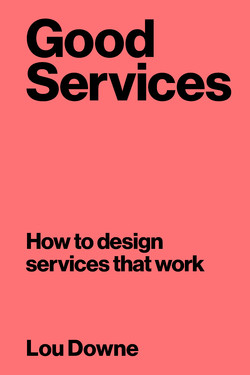Читать книгу Good Services - Lou Downe - Страница 31
На сайте Литреса книга снята с продажи.
ОглавлениеSeveral rounds of research with the users of the service and staff providing it revealed that it was often referred to as ‘help with court fees’ rather than ‘fee remissions’, so the team renamed the service, meaning that users with low levels of financial literacy were able to use it.
When we design services with noun-based names like ‘Fee Remission’, we are designing them for use by experts, something that worked well when services were provided by trained expert humans, but means that they don’t work unassisted on the internet.
Instead we often find that other professionals willingly offer support to our users – at a cost. This happened with Fee Remissions, as it so often does with many of the more obtuse services, from insurance buying to visa applications – when several third-party providers offered their services in helping users apply for what should have been a free service.
In the past, we used advertising to ‘educate users’ in our nouns, forcing the kind of brand familiarity that came naturally to well-used objects like Sellotape, Hoovers or Biros. But unless you’re confident that you will get the kind of market ubiquity that comes from being a household name (and this happens to fewer companies than you’d think), your service is likely to be one of the thousands a user will use infrequently or once in their lives.
Equally, if you’re a household name that has more than one service, this tactic is out. Your users still need to be able to sift through the many things you do to find the one thing that they need, and they aren’t going to be able to do that if you’ve got a jumble sale of nouns to wade through.
